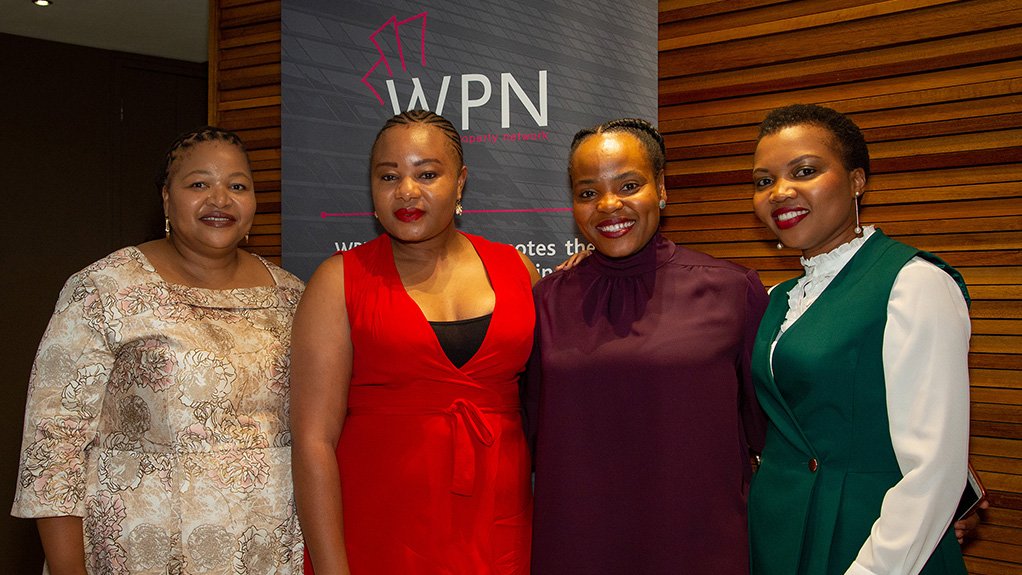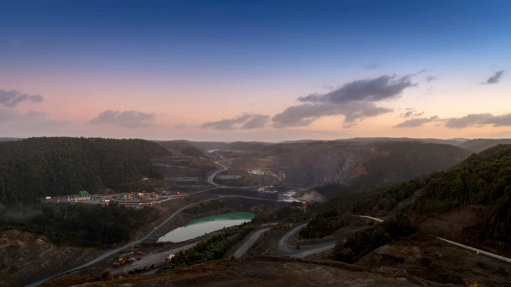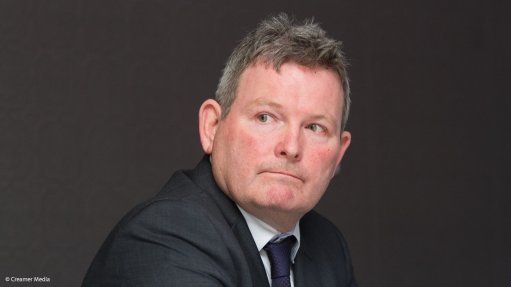Advocacy for women to ramp up going forward


WOMEN WORKING TOGETHER The WPN team is going to ramping up its advocacy work to support women in the commercial and industrial property sector
Following the negative impact of Covid-19 on the commercial and industrial property sector, industry body Women’s Property Network (WPN) aims to ramp up its advocacy work going forward to further promote and support the interests of women working in the sector.
WPN national chairperson Nonhlanhla Mayisela believes that women, among other previously disadvantaged groups and minorities, are likely to suffer the worst of the economic fallout from the pandemic.
She tells Engineering News that despite much progress being made over the years, women continue to operate on the periphery of the property sector – whether as industry professionals or business owners.
“Women still do not enjoy meaningful participation in the property sector.”
Mayisela claims that, in any economic crisis, minority groups are the ones that get impacted on first. This is because these groups often do not operate within the mainstream – which is something that the WPN aims to remedy.
“Women have such a small piece of the pie, with many female-led organisations being small to medium-sized, that the impact on the market is more severe for them,” she says, adding that the chances for a post-Covid-19 recovery for some of these enterprises are slim to none.
Mayisela laments that, across many industries, initiatives regarding gender mainstreaming have been put on the backburner because there has been a general shift in focus towards protecting business operations and simply ensuring survival.
Conversely, the WPN believes that gender mainstreaming must continue to be a strategic imperative and not just a “nice-to-have”. Mayisela firmly believes that gender mainstreaming should continue even in the midst of the current crisis.
“There is still a significant lack of female representation across all segments of the property industry,” she notes, adding that sustainable gender mainstreaming needs to be the result of sustained efforts across the industry.
She notes that, for JSE-listed property companies, female representation at board level is not even close to 30% – a target touted by gender mainstreaming organisation Business Engage.
The built environment segment of the property sector enjoys visible representation at junior and middle-management level, but lacks representation at senior-leadership level, she adds.
The services segment of the property sector, which includes property and facilities management, real estate agents and brokers, has a similar profile for women representation to that of the built environment segment. Mayisela says there is not enough drive to get more representation in the leadership tier.
This services segment is a significant contributor to job creation in the property sector.
“This is where entrepreneurs operate, and this is where most of the WPN’s member base is situated. However, a big challenge for these women is having sufficient access to market and other notable opportunities,” she explains.
Mayisela admits that there is tremendous support at an enterprise development level, where women-led small businesses are prioritised through incubation programmes.
However, she highlights that skills development is overemphasized, which she believes speaks to the problematic assumption that women do not necessarily have the right skills to run a business, which she says is not based on any formal research.
“Overspending on skills development for women often does not yield much value because the women were not necessarily any less skilled than their male counterparts to start with.”
She says that what is truly needed is an array of opportunities for women to prove their ability to get the job done. Importantly, these opportunities need to be on a sufficient scale for them to build sizeable businesses.
“It is also important to emphasize that women should be given opportunities based on merit – and not as charity,” Mayisela declares.
Going forward, the WPN aims to reinforce its partnerships with key industry stakeholders to ensure that women in the sector continue to have as much access to opportunities as possible.
“Some corporates will emerge from the Covid-19 crisis even stronger, and we want to ensure our partnerships with those players are strong to continue improving access for women,” Mayisela says.
She adds that it is particularly important for the WPN to continue driving its entrepreneurial segment.
“The WPN has a fairly strong member base of women-owned businesses. We want to ensure that these businesses are put on platforms where they can leverage opportunities of scale.”
Education
To further support members through the Covid-19 crisis, the WPN has been collaborating with industry players – such as financial experts, economists, attorneys, analysts and real estate investment-trust representatives – to provide the relevant technical knowledge on various topics for members to empower themselves with the tools they need to operate competitively.
The WPN has partnered with industry experts to host a series of webinars to address issues regarding financial support provided to women-owned businesses, rental disputes, the future of office space, as well as the rights and obligations of tenants and landlords at a time where the property sector has been plagued with challenges with regard to paying and collecting rent.
The WPN has also hosted webinars on business rescue to help women in the property sector to navigate through the requirements for business rescue and how to engage in that process, should their organisations need it.
“Knowledge is key to empowering women in the property sector,” Mayisela concludes.
Comments
Press Office
Announcements
What's On
Subscribe to improve your user experience...
Option 1 (equivalent of R125 a month):
Receive a weekly copy of Creamer Media's Engineering News & Mining Weekly magazine
(print copy for those in South Africa and e-magazine for those outside of South Africa)
Receive daily email newsletters
Access to full search results
Access archive of magazine back copies
Access to Projects in Progress
Access to ONE Research Report of your choice in PDF format
Option 2 (equivalent of R375 a month):
All benefits from Option 1
PLUS
Access to Creamer Media's Research Channel Africa for ALL Research Reports, in PDF format, on various industrial and mining sectors
including Electricity; Water; Energy Transition; Hydrogen; Roads, Rail and Ports; Coal; Gold; Platinum; Battery Metals; etc.
Already a subscriber?
Forgotten your password?
Receive weekly copy of Creamer Media's Engineering News & Mining Weekly magazine (print copy for those in South Africa and e-magazine for those outside of South Africa)
➕
Recieve daily email newsletters
➕
Access to full search results
➕
Access archive of magazine back copies
➕
Access to Projects in Progress
➕
Access to ONE Research Report of your choice in PDF format
RESEARCH CHANNEL AFRICA
R4500 (equivalent of R375 a month)
SUBSCRIBEAll benefits from Option 1
➕
Access to Creamer Media's Research Channel Africa for ALL Research Reports on various industrial and mining sectors, in PDF format, including on:
Electricity
➕
Water
➕
Energy Transition
➕
Hydrogen
➕
Roads, Rail and Ports
➕
Coal
➕
Gold
➕
Platinum
➕
Battery Metals
➕
etc.
Receive all benefits from Option 1 or Option 2 delivered to numerous people at your company
➕
Multiple User names and Passwords for simultaneous log-ins
➕
Intranet integration access to all in your organisation



















